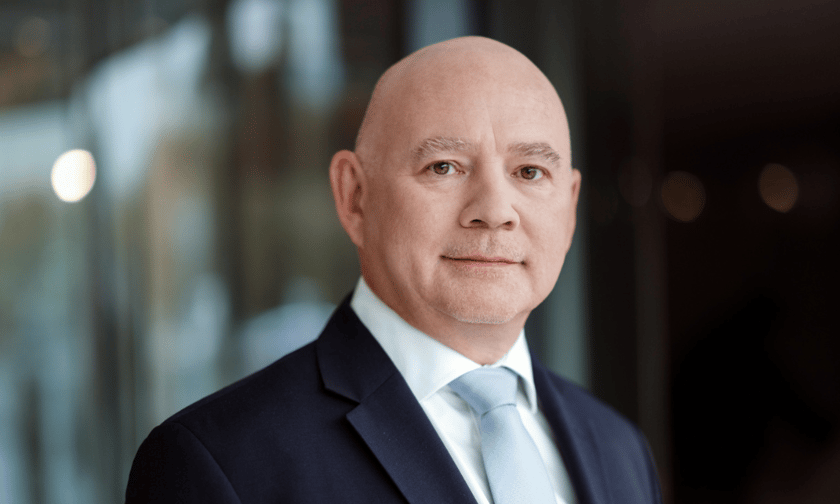

It’s an interesting paradox how the breadth and scale of the reinsurance broking sector become more visible the closer you zero in on the niche and specialist corners of the market.
Take, for instance, Smartt Re – a Polish reinsurance broker leading the charge on covering large and difficult-to-insure risks in key sectors of the economy – including conventional, renewable and nuclear energy, infrastructure, heavy industry, marine or aviation. Offering an in-depth insight into the work of the firm, CEO Tomasz Libront (pictured) highlighted that its role is to provide the Polish insurance market with the capacity needed to keep up with the Polish economy’s development.
“And the development has been huge,” he said. “For example? Of the countries that joined the European Union in 2004, Poland's GDP grew the fastest, doubling between 2004 and 2022, according to the estimates of the Polish Economic Institute. Our country has just received the largest transfer from the EU in the history of our membership in the EU.
“In total, Poland has been allocated almost €60 billion to our so-called National Reconstruction Plan. A substantial chunk of the money will be invested in the energy transition. Poland has also commenced a nuclear energy investment process, with its first large-scale nuclear power plant worth between €25 billion and EUR35 billion. With such a huge demand and investments underway to cover, the Polish insurance market needs to be open to greater cooperation with foreign reinsurance markets.”
For Libront and his team at Smartt Re, the challenge is that the direct enquiries have been largely directed to the biggest reinsurers, mostly from the Lloyd’s and European markets. Meanwhile, he said, smaller firms and those from distant destinations, like Asia, the Americas or the Middle East - with equally acceptable ratings – were rarely considered by the Polish market.
“We’ve seen potential here to be exploited to the benefit of both sides and we have been facilitating its unlocking,” he said. “While our key market is Poland, we operate alike in the Baltics - in Lithuania, Latvia and Estonia, primarily supporting to reinsure the property risks.”
Libront noted that Smartt Re’s path to becoming a leading reinsurance broker in Poland started in 2007, back then as a Polish branch of Colemont Brokers – which was later bought out by THB (now AmWINS). Since undergoing an amicable management buy-out process in 2018, he said, the business has grown from a brokerage with €1 million in GWP in 2007 to commanding €6.5 million as of the end of 2023.
“As part of MJM Holdings since 2021, the ninth largest brokerage group in Poland and Corsair Capital, a private equity fund specialising in financial services market investments as its majority stakeholder,” he said, “we have gained greater financial capacity and the potential to grow the team, hire new experts and deepen specialisations.”
Looking at the growth of the business, Libront affirmed his belief that it is only thanks to its great team of people that the reinsurance brokerage has been able to create and maintain its reputation for ceaselessly seeking out new solutions for placing some of the largest and most difficult reinsurance projects in international markets.
As to what gives the firm its competitive advantage, he emphasised that this is due to its careful combination of having broker experience and underwriting skills under one roof.
“We can speak the same technical language as our partners,” he said. “That is why, I believe, we managed to build our position and reputation internationally. With a team of 11 brokers on board we placed reinsurance premium amounted to €109 million in 2023 alone.”
Given Smartt Re’s predilection for supporting the placement of complex reinsurance projects, Libront is well-placed to offer an overview of a market that encapsulates that complexity – the energy reinsurance market. He noted that Poland’s energy mix has been historically largely dependent on fossil fuels.
From a reinsurance perspective, he said, facultative reinsurance has been severely limited in this case for some time now. Meanwhile, regarding treaty, the reduction of exposure to risks which have a negative impact on the environment, as a result of the pursuit of ESG objectives, may well start in a year or two.
“Large insurance companies have developed their own guidelines for insuring such risks and in some cases refuse to cover them,” he said. “We are observing this trend and talking to our international partners about its consequences, but also about opportunities for cooperation.”
As a broker involved in the reinsurance of the largest and strategic risks for the Polish industry, including the four conventional power plants in Poland, he said, Smartt Re is able to explain the conditions of the Polish economy and the backgrounds of the transformation that energy companies are currently undergoing to the reinsurers.
“Nuclear power industry plays a significant role in Poland’s transition to climate neutrality,” he said. “Considering this, our country will soon become part of the global nuclear risk management chain. The size of the project and its complexity mean that the Polish insurance market will not be able to insure the entire project on its own without the support of the foreign reinsurance market.
“We are doing a lot, but there is a need to step up the pace and jointly prepare an insurance strategy, with the participation of all stakeholders, for all its stages and considering the entire supplier chain.”
